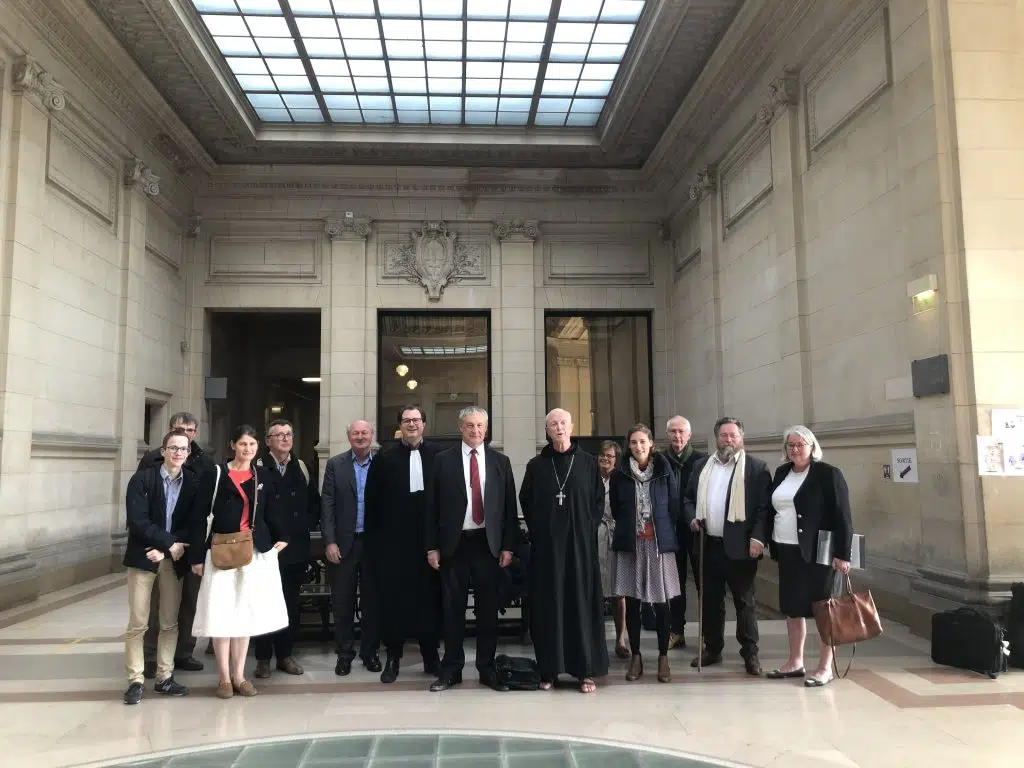
The French association of traditional Catholics, Renaissance Catholique, has won an appeal in a lawsuit filed by three LGBT activist associations for a text published on the association’s website in 2019. The text, according to the activists, provoked “discrimination against a group of people because of their sexual orientation.” The court acquitted Renaissance Catholique on appeal on the grounds that the incriminated remarks were protected by freedom of expression.
On 13 June 2019, Renaissance Catholique published an article on its website entitled “The Church of the Living God: the Pillar and Support of Truth.” It stated:
Civil authorities must not establish civil or legal unions between two persons of the same sex, which clearly imitate the union of marriage, even if such unions do not receive the name of marriage, since such unions would encourage grave sin for the persons concerned and cause grave scandal for others.
This statement is consistent with the moral teaching of the Catholic Church, but three LGBT associations, Stop Homophobia, Mousse, and Adheos, considered it discriminatory against homosexuals. The text was not the product of the editorial staff of Renaissance Catholique, which was only the publisher. The article emanated from recognised authorities of the Church and was signed by several prelates: Cardinal Burke, patron of the Order of Malta; Cardinal Pujats, archbishop emeritus of Riga; and Bishops Peta, archbishop of St. Mary’s in Astana; Lenga, archbishop emeritus of Karaganda; and Schneider, auxiliary bishop of St. Mary’s in Astana in Kazakhstan.
In the first instance, the court stated that the incriminated remarks “reiterated the Church’s position on same-sex unions and the religious considerations that motivate it,” and that they could therefore not, as such, be considered discriminatory. “These statements merely express the opinion of the Catholic Church on the issue of same-sex civil unions. They are statements protected by freedom of expression and opinion, as long as they do not contain any exhortation to commit positive acts of discrimination.”
The three associations were not satisfied with this decision and appealed. The Paris Court of Appeal, in a ruling of 16 November 2022, upheld the first instance ruling. The court session was marked by the testimony of Dom Louis-Marie, father abbot of the traditional Benedictine abbey of Le Barroux, who reminded the court that the incriminated text was simply a repetition of two thousand years of Church teaching. According to the website Riposte catholique, none of the French bishops who were asked to testify agreed to do so.
At the end of the trial, Jean-Pierre Maugendre, president of Renaissance Catholique, said he was pleased that, for the time being, the Catholic Church’s freedom to teach on homosexuality in these terms had been recognised in France. The plaintiff LGBT associations have given up their appeal to the Supreme Court. But further offensives are to be feared, as many associations are known to wage a veritable legal war against structures offering a moral discourse in conformity with natural law and the teaching of the Catholic Church. These associations benefit from public support because they receive numerous subsidies, notably from the Paris City Council or the Ile-de-France region. They are therefore financed by the taxes of believers and non-believers alike.
